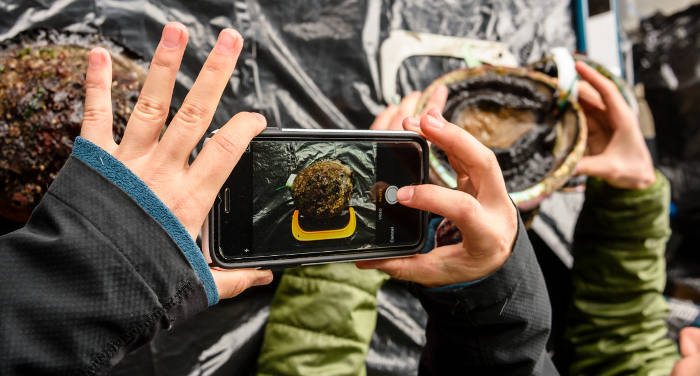Wild capture fisheries supply food and jobs for hundreds of millions of people across the globe. Yet an estimated 68% of global fisheries are overfished, contributing to food insecurity, economic impacts, and an erosion of biodiversity. Ocean health and sustainable fisheries both depend on effective fisheries management.
Effective management of fisheries requires three fundamental elements: data collection, stock assessment and implementation of effective rules and regulations. Innovative approaches and technological solutions such as data-limited assessments, electronic monitoring, and co-management can address these needs, but have yet to be scaled broadly.
California fisheries supply more than 250 species of local seafood. The Conservancy aims to ensure these fisheries are managed sustainably with cutting edge approaches and technology that improve the environmental and economic performance of fisheries, protect habitats and vulnerable species, reduce bycatch, and serve as a model for global fisheries management reform.

Halpern, B.S., Diamond, J., Gaines, S., Gelcich, S., Gleason, M., Jennings, S., Lester, S., Mace, A., McCook, L., McLeod, K., Napoli, N., Rawson, K., Rice, J., Rosenberg, A., Ruckelshaus, M., Saier, B., Sandifer, P., Sholtz, A., Zivian, A.
This paper informs emerging efforts to implement coastal and marine spatial planning (CMSP) in the United States, Europe and elsewhere around the world. In order to identify priority needs for…Mary Gleason, Chuck Cook, Michael Bell, Erika Feller
This editorial highlights the polarization and lack of innovation in U.S. fisheries management, using the West Coast groundfish fishery as an example. The authores focus on the need for new…Mary G. Gleason, Matt S. Merrifield, Chuck Cook, Audrey L. Davenport, Rebecca Shaw
This study is the first marine gap analysis for California. It quantifies what is protected and what is not and highlights conservation needs and opportunities. Less than 5% of marine habitats are…